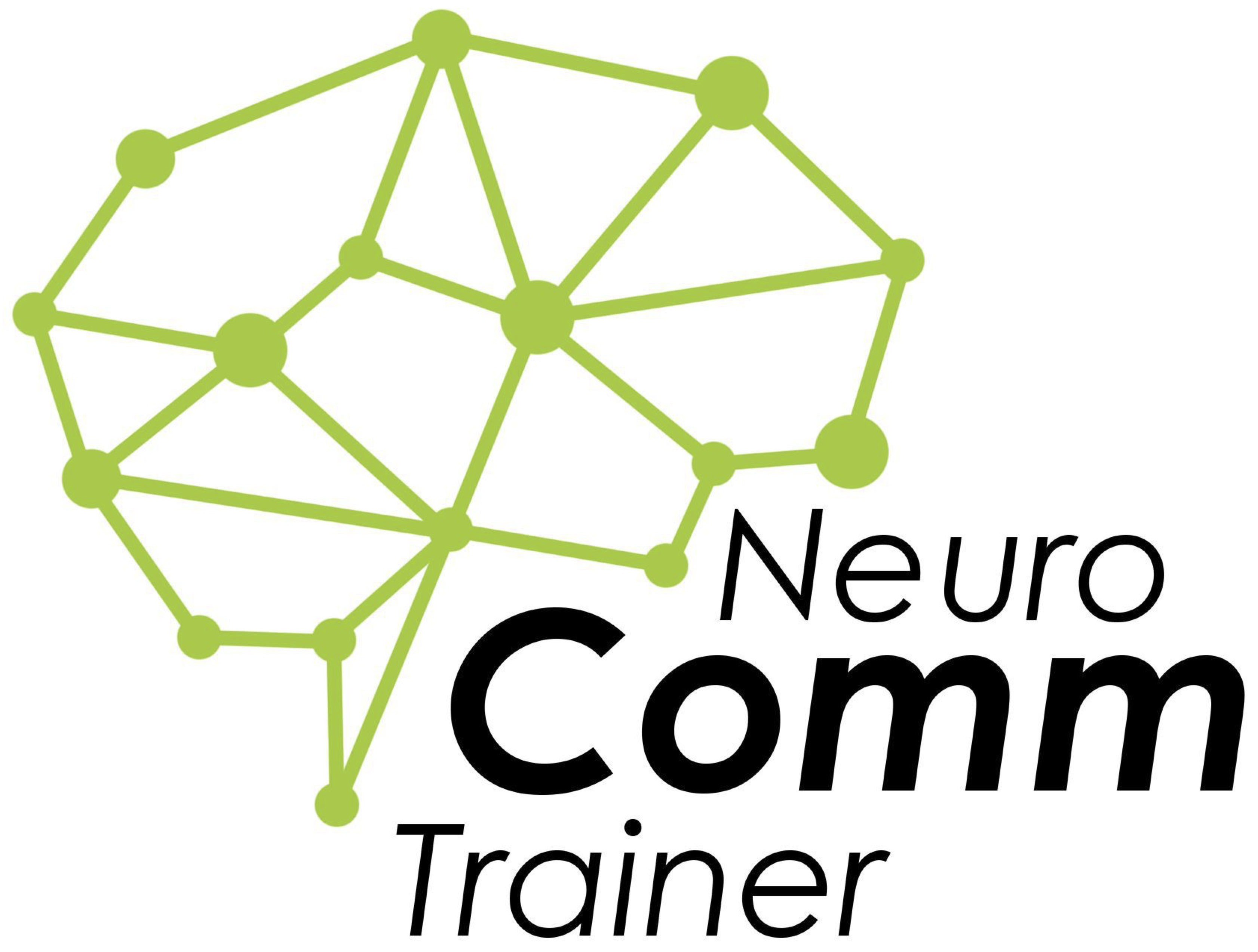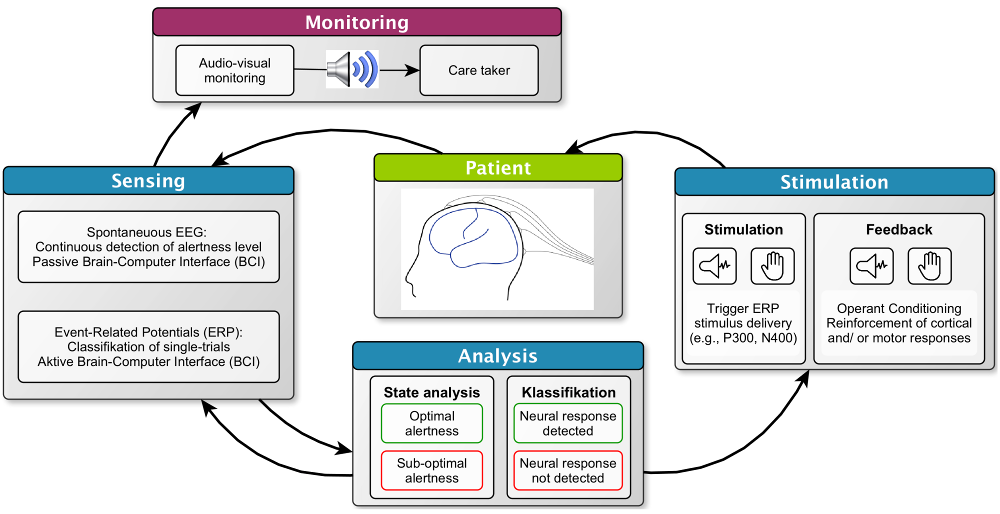 Every year thousands of people in Germany suffer severe traumatic brain injuries resulting in a permanent loss of consciousness and the ability to communicate. Our project aims at combining innovative interaction concepts with novel technology to improve the every day life of patients, care takers and relatives. We develop an adaptive, multi-modal training and communication system based on neural activity (EEG) and other sensor data to reinforce the patient's residual reactions and build up basal communication possibilities.
Every year thousands of people in Germany suffer severe traumatic brain injuries resulting in a permanent loss of consciousness and the ability to communicate. Our project aims at combining innovative interaction concepts with novel technology to improve the every day life of patients, care takers and relatives. We develop an adaptive, multi-modal training and communication system based on neural activity (EEG) and other sensor data to reinforce the patient's residual reactions and build up basal communication possibilities.
Within CITEC the project is a collaboration of the Neuroinformatics Group, the Ambient Intelligence Group and the Affective Neuroscience Group.
Overview of the NeuroCommTrainer approach:

External Project Partners:

read more »











































